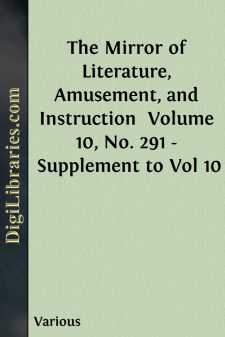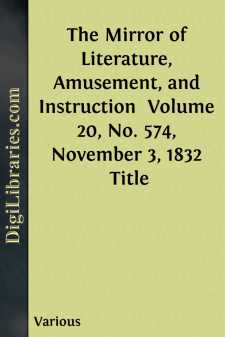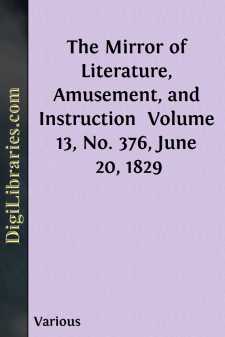Categories
- Antiques & Collectibles 13
- Architecture 36
- Art 48
- Bibles 22
- Biography & Autobiography 815
- Body, Mind & Spirit 144
- Business & Economics 28
- Children's Books 18
- Children's Fiction 14
- Computers 4
- Cooking 94
- Crafts & Hobbies 4
- Drama 346
- Education 58
- Family & Relationships 59
- Fiction 11833
- Games 19
- Gardening 17
- Health & Fitness 34
- History 1378
- House & Home 1
- Humor 147
- Juvenile Fiction 1873
- Juvenile Nonfiction 202
- Language Arts & Disciplines 89
- Law 16
- Literary Collections 686
- Literary Criticism 179
- Mathematics 13
- Medical 41
- Music 40
- Nature 179
- Non-Classifiable 1768
- Performing Arts 7
- Periodicals 1453
- Philosophy 65
- Photography 2
- Poetry 896
- Political Science 203
- Psychology 44
- Reference 154
- Religion 515
- Science 126
- Self-Help 85
- Social Science 82
- Sports & Recreation 34
- Study Aids 3
- Technology & Engineering 59
- Transportation 23
- Travel 463
- True Crime 29
Our website is made possible by displaying online advertisements to our visitors.
Please consider supporting us by disabling your ad blocker.
The Mirror of Literature, Amusement, and Instruction Volume 10, No. 291 - Supplement to Vol 10
by: Various
Categories:
Description:
Excerpt
MEMOIR
OF
His Royal Highness the Duke of Clarence,
LORD HIGH ADMIRAL OF ENGLAND.
Ye sacred arks of Liberty! that float
Where Tamar's waters spread their bosom wide,
That seem, with towering stern and rampart stride,
Like antique castles girt with shining moat:
Should War the signal give with brazen throat,
No more recumbent here in idle pride,
Your rapid prows would cleave the foaming tide,
And to the nations speak in thundering note.
Thus in the firmament serene and deep,
When summer clouds the earth are hanging o'er,
And all their mighty masses seem asleep,
To execute Heaven's wrath, and judgment sore,
From their dark wombs the sudden lightnings leap,
And vengeful thunders peal along the shore.
Forget Me Not—for 1828.
The recent appointment of the above illustrious individual to the head of our naval administration is a gratulatory topic for every Englishman; and we doubt not the measure will contribute as largely to individual honour, as it will to the national welfare. In the abstract, nations resemble large families, of which kings are fathers or guardians; and the subdivision of this guardianship or paternal government, among the sons or younger brothers of the sovereign is calculated to promote unanimity among the governors, and to engraft with affectionate loyalty the hearts of the governed. Indeed, the tutelar presence of princes seldom fails to inspire courage, and to support the patriotic sons of arms even in the extremes of danger; and, although the princes of our times have seldom been distinguished in the camp of war,—we should recollect that
Nihil sunt foris arma nisi est consilium domi.
The DUKE of CLARENCE, who is next brother to his present Majesty, was born at St. James's Palace, August 21, 1765, at a quarter before four in the morning, and in the following month was baptized by the name of WILLIAM HENRY. It is said that in his childhood and youth, it was the frankness of his countenance and behaviour induced the king to devote him to the naval service: added to this, he surpassed his brothers in corporeal strength and constitutional hardihood; although he was exceeded by them in the more refined acquirements of study, to which he manifested comparative indifference. With a mind naturally framed for peril and enterprise, and aware of the subordinate rank and laborious stations through which he must pass to distinction, he appears to have been enthusiastic and impatient for the service long before he entered the lists, notwithstanding he commenced his career at the age of fourteen, by joining the Prince George, a ninety-eight-gun ship, recently built, and named after his present majesty. In this ship, under the command of Admiral Digby, his royal highness bore a part in the great naval engagement between the English and Spanish fleets, commanded by Admiral Rodney and Don Juan de Langara. Previous to his leaving the Prince George, he was also present at the capture of a French man-of-war and three smaller vessels, forming part of a considerable convoy; but in neither of these instances was an opportunity offered for any distinguishing effort of bravery....












